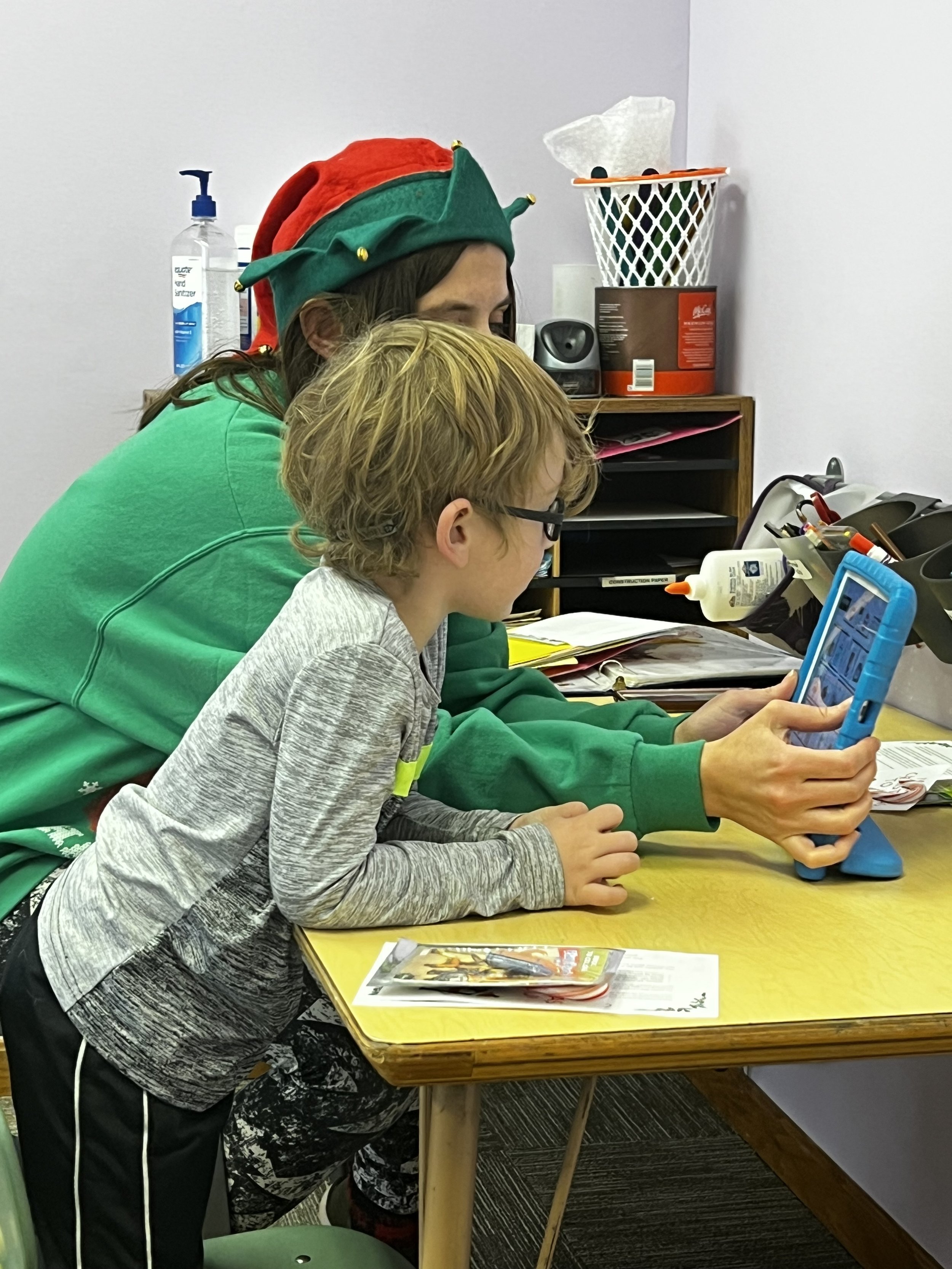
Creating Pathways to Success: The Impact of Physical Therapy on Children with Special Needs
Physical therapy plays a vital role in enhancing the standard of living for kids with unique requirements. It focuses on enhancing their physical abilities, mobility, and overall well-being. By implementing strategies tailored to the needs of each child, therapists can create a positive and effective therapeutic environment.

The Power of Play: Incorporating Play-Based Interventions in Pediatric Physical Therapy
Physical therapy plays a crucial role in promoting the development and well-being of children. For parents seeking the best interventions for their children's therapy, play-based interventions have gained significant recognition in recent years. By understanding the benefits of play-based interventions, parents can actively participate in their child's therapeutic journey, fostering motor skills, engagement, and overall progress.

Supporting Progress: How Physical Therapy Enhances Motor Skills in Children with Down Syndrome
Physical therapy serves as a cornerstone in the comprehensive care of children with Down syndrome. By focusing on their individual needs, physical therapists help children improve their motor skills, enhance muscle tone, and develop better coordination. Additionally, physical therapy promotes overall physical fitness, which contributes to better cardiovascular health and helps prevent obesity.

Take Speech Outside!
Summer time is one of my favorite times of the year! With having littles, going outside and playing is super fun and exciting and is an easy way to incorporate some speech skills. My kids love exploring and just being outside.

Empowering Children with Down Syndrome through Occupational Therapy
Parenting a child with Down syndrome presents unique challenges, but with the right support, every child can thrive. Occupational therapy is a valuable resource that can enhance the development and overall well-being of children with Down syndrome. In this article, we will explore the benefits of occupational therapy and how it can help children with Down syndrome reach their full potential.

Promoting Child Independence: Nurturing Vital Life Skills
Life skills play a pivotal role in enabling children to navigate daily life effectively and attain independence. Instilling these skills in children is vital as they form the bedrock for future success in academics, social interactions, and overall well-being.

The Power of Joint Attention: Enhancing Skills through Occupational Therapy
In the field of occupational therapy, joint attention skills are recognized as critical for a child's overall development, including language development, social interactions, and cognitive abilities. Occupational therapists play a significant role in enhancing joint attention skills, providing children with a strong foundation for future success.

What is Pragmatic Language?
Pragmatic language refers to how we use language in social situations to communicate effectively. It involves the words we use and our tone of voice, body language, and understanding of social cues. It also includes turn-taking, staying on topic, understanding and using nonverbal cues, and adjusting language based on the listener and situation. For many children, learning to use pragmatic language can be challenging, and speech therapy can be a helpful tool in developing these skills.

The Importance of Setting Goals for Children with Executive Functioning Defecits
Setting goals is an important aspect of developing executive functioning skills in children. Goals provide a sense of direction and purpose, allowing children to focus their attention and energy on specific tasks. This not only improves their ability to complete the task at hand, but also helps to improve their overall executive functioning skills.

The Importance of Executive Functioning in School: How to Help Your Child Improve their Skills
Sometimes children may struggle with managing their schoolwork. This is where executive functioning skills come in. Executive functions are the cognitive skills needed to complete a task, ranging from problem-solving to organization. These skills are crucial for a child's success in school and in their daily lives.

The Benefits of Mindfulness Techniques in Improving Executive Functioning Skills
Executive functioning (EF) skills are crucial for managing everyday tasks, and deficits in these skills can lead to difficulties with problem-solving, organization, and time management. As a pediatric occupational therapy clinic, we work with children who struggle with EF deficits and provide them with strategies to improve their skills. One such strategy that is particularly effective is mindfulness.

The Connection Between Executive Functioning and Mental Health: How to Support Your Child's Emotional Well-being
As a parent, you always want to ensure your child is happy, healthy, and successful. And a huge part of their success is their mental health. This is why it's important to understand the connection between executive functioning and mental health, and how to support your child's emotional well-being.

How Executive Functioning Impacts Learning in Children: Strategies for Parents and Educators
Executive functioning skills are crucial for learning and academic success in children. These cognitive skills are essential for organizing, planning, and executing tasks in daily life, especially in a classroom setting. However, children with executive function deficits may struggle with academic tasks such as following directions, completing homework, taking notes, and studying for exams. In this article, we will discuss the impact of executive functioning on learning in children and strategies for parents and educators to help improve these skills.

In-School versus Outpatient Speech Therapy
Speech therapy can occur in different settings, including in-school and outpatient or clinic settings. In-school services and outpatient services are available, however they will need to qualify. There is a different process to qualify for in-school speech services and outpatient services. In some cases, children may qualify for both in-school and outpatient services. Here are some key differences between these two types of services and when each may be appropriate.

What are AAC devices?
AAC devices, or Augmentative and Alternative Communication devices, help individuals with difficulty communicating verbally. Children who struggle with verbal communication can include children with speech and language disorders, as well as those with physical disabilities that affect their ability to speak.

More Games to Boost Executive Function Skills
Executive function skills refer to a set of cognitive processes that help us manage our thoughts and actions effectively. These skills are essential for success in school, work, and life in general. Fortunately, there are many fun and engaging games that can help develop executive function skills

Improving Executive Function Skills in Children through Games
Executive function skills are essential mental processes that help individuals regulate, control, and manage their thoughts, actions, and emotions. These skills are crucial for success in school, work, and daily life. As a parent, you may be wondering how to enhance your child's executive function skills. The good news is that games can help children develop these critical mental processes while having fun and engaging in enjoyable activities.

Great Physical Therapy Toys
Toys can be an effective tool in pediatric physical therapy as they can motivate and engage children in therapeutic activities. We use toys frequently as they make physical therapy more engaging and fun. Toys can help children stay motivated and make their therapy sessions more enjoyable.

Toys to Help with Occupational Skills
Toys can be a valuable tool in occupational therapy for children. Depending on the child's needs and goals, different toys can be used to improve fine motor skills, hand-eye coordination, sensory processing, and more. For example, puzzles can help with problem-solving and cognitive skills, while building blocks can improve hand strength and dexterity. Sensory toys like play dough or kinetic sand can provide tactile stimulation and help with sensory processing. Playing with toys can also encourage social skills and communication, as children may play together and interact with each other. Overall, incorporating toys into occupational therapy can be both fun and effective for children.

Toys For Learning Speech
A frequent question we get is what toys will help my child learn language? The good news is that many toys can be utilized for encouraging language development!
